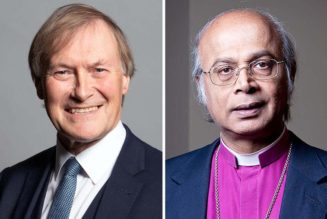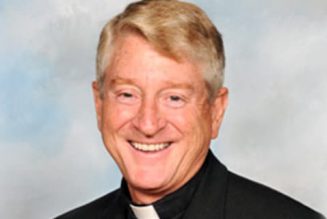
The Time of the Virus will have a significant effect on theological study, research, and training. The economic elements of this effect are obvious: a decline in congregational giving, in part tied to the disappearance of many small congregations; the death of an older generation of committed givers; and the squeezing out of theological studies, or their merging with non-theological disciplines, within university systems.
But the Time of the Virus is also exposing the superficiality of ecclesial witness more broadly. Churches have had little to say during this period beyond platitudes: encouragement, social responsibility, mutual care. Platitudes, of course, are generally truths; but they are truths that have become superficial (literally “flat”). Cross and resurrection have not been silenced in the Time of the Virus, only rendered banal, as ciphers for a common social good or as indicators of some motivating energy to keep us going. We praise God by thinking through God’s wondrous reality. But to do it well will require a renewed apprehension of the faith and motives that justify theological institutions and their work in the first place.
People are barely beginning to grapple with this. Shutting the doors to churches and classrooms, turning pastors into information-adepts, closing off communal interaction—all this raises the question of what exactly the Christian vocation is. What has God done in the world, in Christ, that makes Christian discipleship compelling, just here, just now, or anytime? Why have I been born, to live for a few decades and then to die? What is the meaning of my family, from whose elders I have been banished by the civil authorities?
These are all age-old questions—“To whom will we go?” Peter asks (Jn. 6:68). But for a long time our ecclesial cultures have mostly ignored them. Everything we older theologians have equipped younger people with now sounds like the tin clang of jargon: pietistic, academic, or ideological. “The Kingdom of God”—the great watchword of the 20th century—has shriveled in the imagination. When one is stuck in a small apartment with an anxious spouse, two young children, little money, lingering physical ailments, and no escape, that imagination surely requires a new grounding in the sacred limitations and inner intricacies and beauties, not the expansiveness, of life. The reality, power, and astonishing glory of the Incarnate, risen, and ascended Jesus are in all of this, I am sure. But it will require a new seriousness, repentance, and daring to discern and articulate this reality anew. Younger theologians need to go in this direction, rather than losing themselves digging through the grand abstractions of today’s religious and political philosophies that litter the trenches of so many of our current publishing campaigns.
There will be a deep thirst to forge some theological “response” to the Time of the Virus. I already hear exhortations from Christian leaders, reminding us that the present time is stirring up new powers of Christian proclamation. But most of this energetic cheer, I confess, seems to come down to ramping up current and long-standing commitments to justice, economic reinvention, democracy, environmental sustainability, and generic “hope.”
Good things, all. But like the churches themselves in the Time of the Virus, these purportedly exciting ventures, in their especially Christian and theological character, have long ago dissipated into the musty air of general and unremarkable social responsibility in which most earnest consciences already breathe. The difficult details that might order such responsibility are as absent from theological discussion today as they are from the confused terrain of electoral politics. Christians may once have assumed that they had something special to contribute to this social discernment, largely because they also assumed that their commitments were part and parcel of the political culture itself. The hard work of social change, however, is challenged by complexities that Christians have no unique gifts to resolve. The “end of Christendom,” slowly emerging as a reality after decades, comes to its term in this Time with only a slight and sighing breath. Christians, we realize, are in the same crowded boat as everyone else.
Christendom, however, is a historically limited concept. It refers to the socially settled reality of Christian life. It is a concept devoid of either intrinsic good or negative value. Now is the time of unsettling, which itself has no intrinsic value apart from its faithful encounter. The end of Christendom is not the end of the church. Churches are being unmade and remade, and as they are, theological work and education will be re-formed (and re-built) as well. That will be a long-term process. I assume that I will be dead and gone before trajectories of renewal are made clear. But I am not without hope.
Traditional theological schools and their work will continue, if much reduced in extent. But to survive the economic and substantive dissolution of the era, they will need to decouple themselves, as much as possible, from the administrative pulls of standard academic frameworks: departments, divisions, university and certifying bureaucracies (like the intellectually adrift accrediting bureau known as the Association of Theological Schools). These frameworks have long been bound to cultural norms and now normative demands that are proving bankrupt. It has taken several decades now for Paul Goodman’s and Ivan Illich’s visionary judgments about institutional learning to confirm themselves, but that time seems to have arrived.
Having said that, perhaps only theological studies is equipped to take advantage of Goodman’s and Illich’s prescription for a revamped medieval ordering of education. In the face of the reality that nothing is “too big to fail,” it no longer seems naïve or reactionary to return to educational values built around a small “community of scholars” (in Goodman’s phrase) made up of students and magistri, bonded and fueled by mutual trust, familiarity, and common faith. The larger bureaucracies of the modern university (of which many Western seminaries are but faltering microcosms) seem to have outlived their purpose for the Christian Church. Many non-Western theological schools figured this out long ago. We can learn from them.
If there is to be a rediscovery and revitalization of our rich Christian traditions of reflection—Thomistic, Puritan, Franciscan—it will take place in these smaller and more focused educational communities. The economic constraints of these refashioned places of learning will, one hopes, help to scrape away the methodological accretions of the modern university outlook that have given rise to leaden, lumbering, and seemingly trivial responses in the face of the search for the “words of eternal life” that St. Peter sensed he had found in Jesus (Jn. 6:68). Times of instability are frequently times of insight and even creativity. We can be sure that creative work is already happening—and has been happening—in the interstices and corners of the theological market. But steadiness is also needed—the kind of intellectual stability of discipline, expectations, and time that relative isolation, prayer, and monastic virtues once permitted. Leaders—deans, principals, bishops, trustees—must help us figure this out, but they can only do so if they commit to untethering themselves from the dead weight of the older theological economy.
What will this look like? There will no doubt be a spectrum of formats in play. As I said, not all the older university-style schools (divinity schools, larger seminaries and consortia) will disappear. Nor should they, even if they will shrink in number and perforce change their focus. We will need some of these long-standing institutions, as long as they are good ones, for historic ballast. They will remain at one end of the spectrum. But they will no longer be at the center of theological fire.
If I were younger, vigorous, and had some lateral collegiality, I would get out of the university-seminary style of theological education altogether. Its degrees, exams, certifications, and often phony standards of production and integrity are too hard for many of us to navigate without losing our souls. Some of us already have. I would aim at something for smaller groups of committed theological spirits, bound to holiness of life and humility of mind, given over to the “indwelling Word of Christ” (Col. 3:16), and gathering in churches or homes, using forms of long-term learning that are already well-tested. They would study Scripture, theology, and the church’s history at a slow and regular pace and in a rhythm of gathering that is adapted to the toil of our daily existence. This is perhaps the other end of the spectrum, though it is one toward which the center of gravity will need to shift.
Somewhere in the middle of the spectrum an older model of long-term intensive study and residential life should reemerge. Maybe something like the model of the Jesuits of old or even the Reformed at their most passionate. No part-time study, only immersive formation in the basics (including biblical languages). This too could be done outside of a strict seminary setting, and center on a church or congregational community. Living communities of discipled Christians–including “congregations” in the traditional sense—are in any case both the goal and motor of theological formation. The central weight of responsibility and embodied energy must shift back to these communal groups. Theological scholars will need either to be their leaders or their economic beneficiaries in a period when university-style positions begin to disappear.
As for the rest of the current seminary paraphernalia, I think we can safely leave it aside with respect to foundational curriculum: preaching, missiology, counseling, “contemporary culture,” even “ethics.” These last topics are not inessential or unimportant. Rather, they need to be left to take form on their own in these reshaped settings. They must be reengaged by those who are being discipled and formed, not by their teachers. To be unsettled is to go after the basics in a sustained and coherent way, and to leave the practical to whatever one can manage in the face of God’s yet-unrecognized gifts. Those formed within the twilight of Christendom still have something to offer of the fundamentals, and this is what younger folk should learn from older folk. But the older folk have little concrete sense of the future’s unknown landscape. As a good Erasmian, I am convinced that renewal comes from the difficult and disciplined journey ad fontes. The library resources needed for this are small; the promise, however, is vast. But after that comes another difficult journey forward.
That journey will not be mine. It is important for people of my generation to admit this. All the books we wrote, and the articles we listed on the promotion ledgers or displayed on conference tables will be left behind, as they should be. What I was trained to do, the way I was trained, and the ordered and commodified exercise of this training is a crumbling and certainly hollowed artifact. Renewed theology and theological scholarship awaits its form from among those whose wisdom is not yet mature, though, God willing, one day it will be so. I have confidence in this.
God judges, and we take heart from seeing the truth unveiled. Having seen it, we adjust, repent, convert, and go our way rejoicing.
Ephraim Radner is professor of historical theology at Wycliffe College.
First Things depends on its subscribers and supporters. Join the conversation and make a contribution today.
Click here to make a donation.







